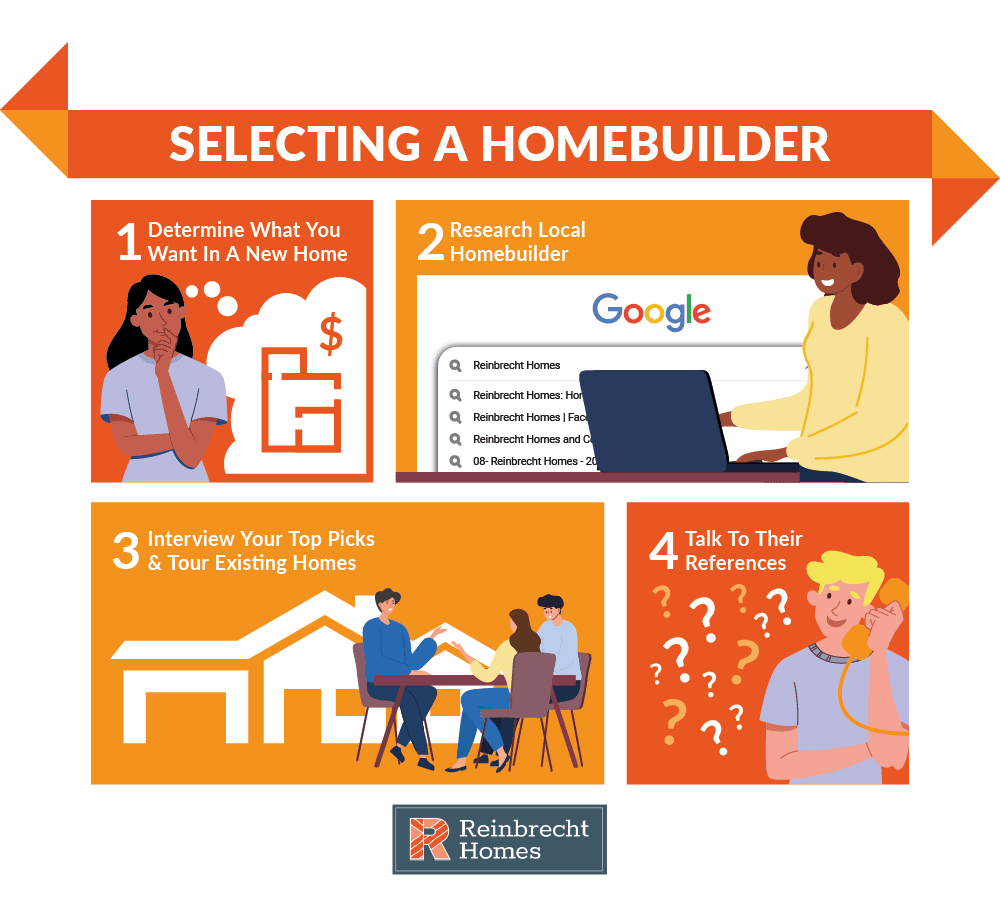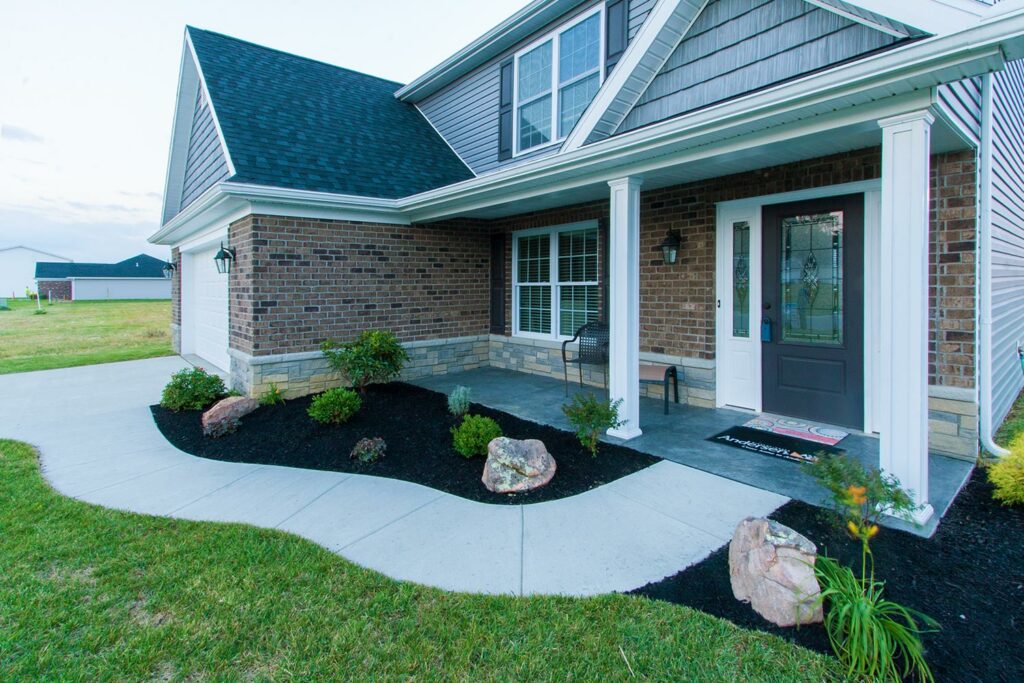Trust needs to be earned.
So what are you supposed to do when the time comes to build a new home, but you’ve never actually worked with a homebuilder?
Deciding who will build your home is stressful. No two ways about it. Especially when you consider, from start to finish, you’ll likely be working with them for six months – or more.
Fortunately, there are proven steps you can take to educate yourself about local homebuilders, ensure your homebuilding experience is smooth and your new home is delivered on time and to your specifications.
Note: If you’re building a custom or highly personalized home, we recommend hiring your builder early in the design stages, to better control costs and expectations over the life of your project.


1. Determine What YOU Want First
Start your research by first determining what you, as the customer, expect out of your builder.
What are your top priorities for your new home? What are the non-negotiables?
Ask yourself:
- Am I willing to compromise on the size or layout of my new home?
- Is my budget 100% firm, or am I able to flex in either direction?
- Is my move-in date set in stone?
- What are my thoughts on the quality of building materials vs. overall cost?
- Do I know where I want to build
Next, you need to ask yourself, ‘what do I expect from your homebuilder during and after construction?’
How often do I expect communication and updates?
What kinds of warranties do I expect to see?
(If you’re not building custom) how much control do I want over the personalization of home details and appliances?
Two Things You Should Always Expect
No matter who you decide to work with, your homebuilder should facilitate clear and constant communication – to your satisfaction. Can you contact your builder on weekends? Do they have a full-time staff or a software solution to ensure you’re kept in the loop whenever it’s convenient for you?
Additionally, your builder should always stay on budget.
If construction is ever in danger of going over your predetermined budget, it’s the builder’s responsibility to consult you immediately before anyone moves forward.
2. Research Local Homebuilders
For most people, the search for a homebuilder naturally begins by asking friends and family for recommendations. From there, we suggest you assemble a list of builders in your area.
Google is an obvious starting point, but go a step further and check out your local or regional Home Builders Associations website.
Additionally, any connections you might have in the real-estate world could prove useful, since agents often have well-informed opinions on local homebuilders.
As you assemble your list, remember it’s OK to be critical. You don’t necessarily have to speak to a builder one-on-one to determine if they’d be a good fit for you or not.
You can learn a lot by doing some digging on their websites.
- Can you find customer feedback online?
- What do their warranties look like?
- Do they have a service guarantee?
- Do they design homes that interest you?
Most importantly, do any builders on your list get you excited? The decision to build a home is huge … you should at least be excited about getting started!
3. Interview Your Top Picks and Tour Existing Homes
Once you’ve pruned your list of contenders, it’s time to start vetting them out.
You’ll want to do this face-to-face, and establish a few things out of the gate:
- Where do they build?
- Who are their subcontractors?
- What’s their timeframe for a project like yours?
- How long have they been in business?
- Are they properly insured?
- Are there additional fees relating to the home or development?
- If you plan on using their designs, is their flexibility in the floorplan? (Could you add a basement or a deck?)
- Is landscaping included in your build cost?
- How will they keep you informed moving forward?
- Are they willing to provide references?
Whoever you choose will be a big part of your life for the next few months (or longer), so the most important thing to establish early on is whether or not you think you can work with them well.
Are they easy to communicate with?
Do they seem knowledgeable and answer your questions clearly?
4. Collect and Actually Talk to Their References
If you don’t have the chance to tour a previous customer’s home, be sure to spend some time investigating at least one model home. Seeing and feeling a completed living space – in person – will go a long way towards helping you make your final decision.
One of the quickest ways to put your mind at ease will be talking to people, like yourself, who chose to work with a particular homebuilder. After collecting references from your potential builders, be sure to follow-through. Don’t accept a list as proof of approval.
Make some phone calls and ask about the planning process.
- How accurate were the builder’s estimates?
- Was a building schedule clearly communicated?
- Were finances handled openly, without any hiccups?
How was it working with the builder once the project was started?
- Did the project feel organized?
- How often was the builder in contact with you?
- What were your experiences with their sub-contractors?
- How did the builder handle deadlines?
- Were they upfront about change orders?
- Was the home delivered on time and on budget?
It’s safe to assume that a new home tops the list of “Big Life Purchases,” so it’s important to partner with a company that has your best interest at heart. If you trust your instincts and follow some of the ideas mapped out here, you’ll be one step closer to a home that fits your lifestyle, your budget, and your plans.




